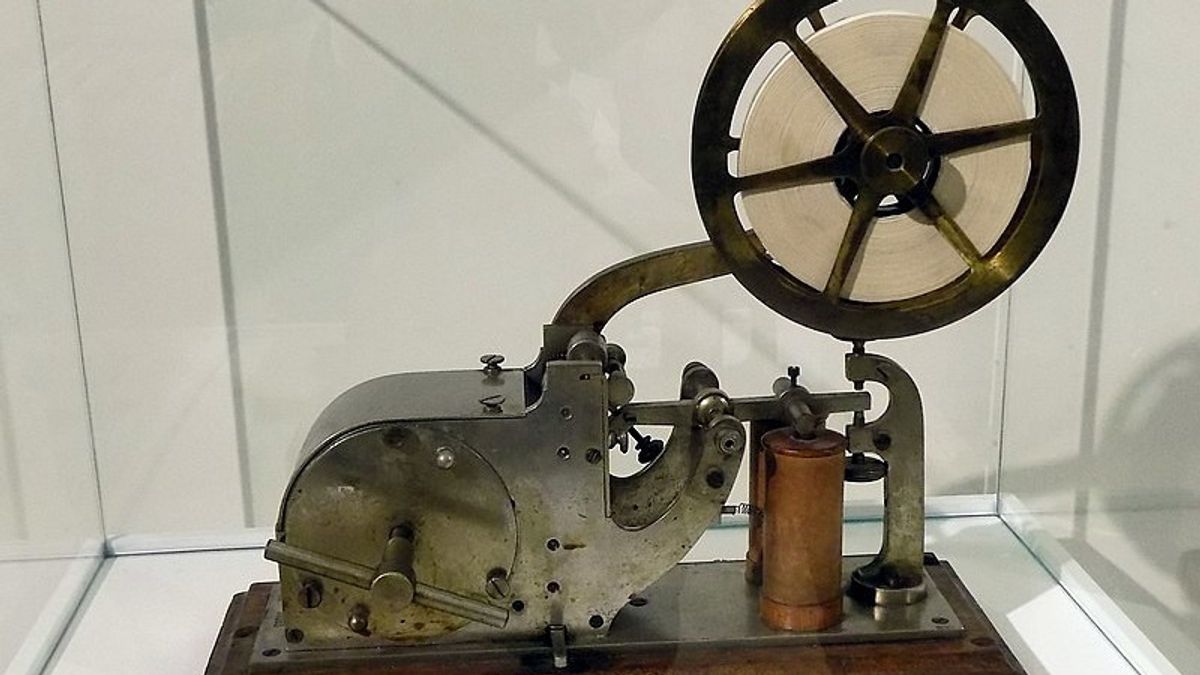JAKARTA - Today the telegraph may be viewed by people as a communication technology that looks outdated, even among them no one is familiar with this object. However, we should be grateful for the invention of this technology, because the telegraph succeeded in revolutionizing communication technology by removing the boundaries of people who want to carry out long-distance communication.
As is known, who invented telegraph technology was Samuel Finley Breese Morse. The man who was born on April 27, 1791 actually has a background as an artist, however, since studying at Yale University, he has also been interested in the world of electricity.
As depicted in Morse's biography, written by Carleton Mabee in The American Leonardo Morse, is a man of diverse talents and interests. Morse, who was trained as a visual artist, managed to become one of the best painters in the region. Morse was also an influential person in the American political arena in the 19th century. He was able to exert political influence on anti-Catholic and pro-slavery political movements.
As quoted by history.com, the origin of the idea of making the telegraph was when he heard about an invention of the electromagnet. This topic became the topic of discussion for many people, including Morse.
He spent years developing a prototype for the forerunner of the telegraph with his assistants Leonard Gale and Alfred Vail. Finally, the effort was not in vain. Today January 6, 1838, Samuel Morse demonstrates the telegraph system for the first time at Speedwell Iron Works Morristown, New Jersey.
He demonstrated how a device that relies on a power cord can send a message by sending a password. The code is in the form of Morse code which makes dots and long lines as symbols representing letters and numbers.
The discovery is only the beginning until it can benefit many people. In order to be developed and used by many people, Morse and his friends needed a lot of funds. Therefore, armed with his closeness to American politicians, he approached congressmen to apply his findings.
In 1843, Morse finally managed to convince a previously skeptical congress to fund the construction of the first telegraph line in the United States, from Washington DC to Baltimore. After the project was completed, in May 1844 Morse sent the first official telegram over long-distance cables. The contents of the message: What God has done!
Revolutionizing Communication
Several years later, telegraph lines began to be installed around the Northeast by the private company Telegraph New York and Mississippi Valey which later changed its name to Western Union in 1851. Western Union became a company that succeeded in building a telegraph network across the United States.
Five years later, the first permanent telegraph line across the Atlantic Ocean was successfully constructed. By the end of the 19th century telegraph systems existed in Africa, Asia and Australia.
The invention of the telegraph succeeded in revolutionizing the world of communication. This discovery can be said to have an impact that rivaled the invention of the printing machine or the internet.
As TIME wrote, thanks to Morse's invention, communication for the first time in history was no longer limited to the speed of physical letters, and could pass through various remote locations.
If there was no telegraph, maybe until now we are still sending messages by mail. If there was no telegraph there might not be the discovery of optical cables. As long as this telegraph line cable is connected, humans will be free from distance, human communication will be limitless.
This technology, which is also often used in the world of warfare, reached its peak of popularity in the 1920s and 1930s. After that the prestige of the telegraph began to change.
The telegraph has been largely replaced by cheap long-distance telephone, fax and e-mail services. Western Union sent the last telegram in January 2006.
The English, Chinese, Japanese, Arabic, and French versions are automatically generated by the AI. So there may still be inaccuracies in translating, please always see Indonesian as our main language. (system supported by DigitalSiber.id)










